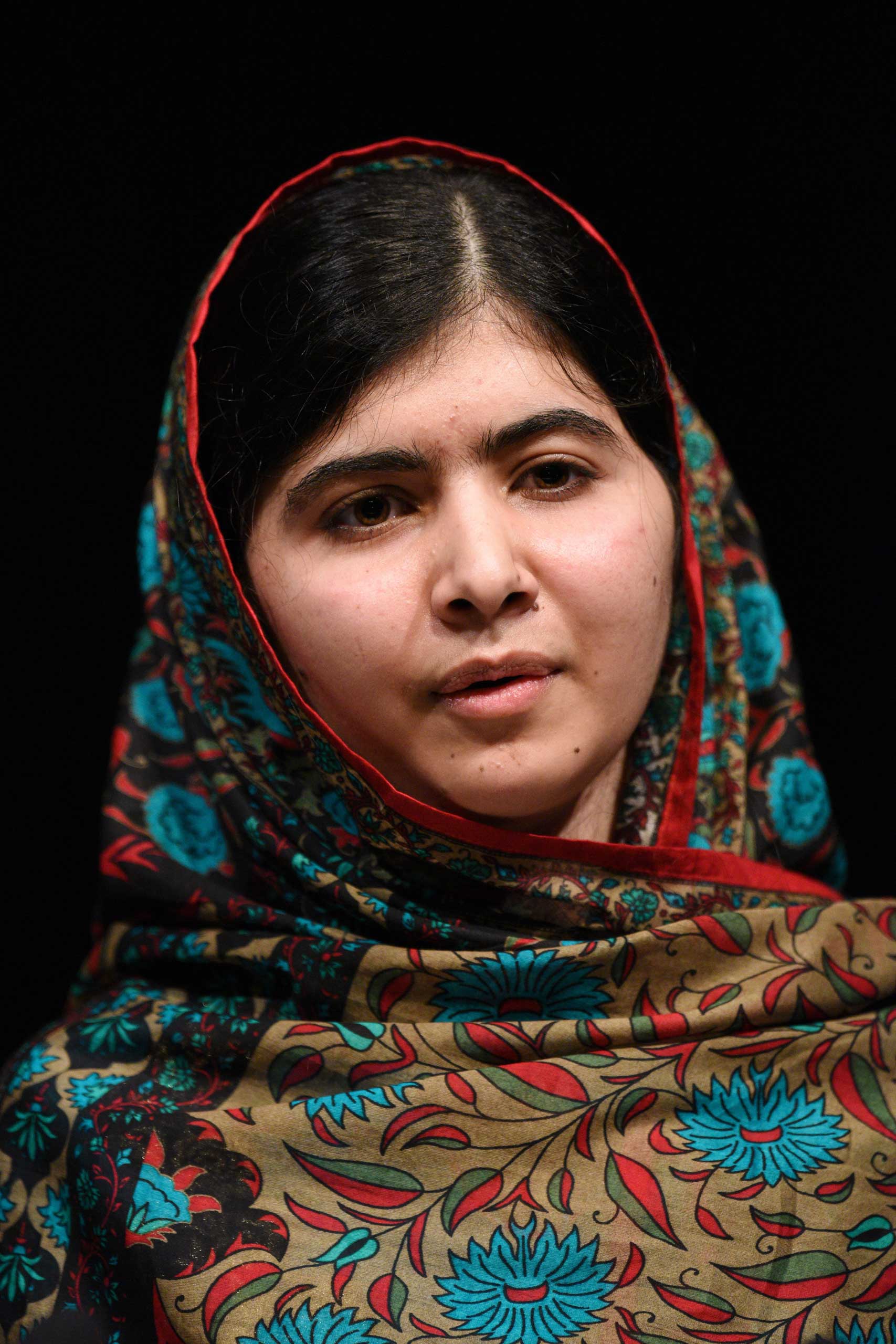
Who inspires you? Over the past year I’ve been honored to travel and meet some exceptional girls. These young women won’t let anything stand in the way of their education. They inspire me.
Amina is one such girl. I met Amina last summer when I traveled to Nigeria. Her home in northern Nigeria is a place where education is under attack by Boko Haram. Despite the always present threat of violence and the fact that girls hardly ever attend secondary school, Amina persisted — she stood up for her right to an education. I know firsthand that the act of simply showing up at school is dangerous. It takes courage.
But for Amina, showing up was just the start. She excelled, and after graduation she received a scholarship from the Centre for Girls’ Education and serves as a mentor to other girls. I was so inspired that the Malala Fund now supports the Centre.
Meeting Amina and girls like her in refugee camps in Jordan, together with my own experience in Pakistan, has all taught me an important lesson: While basic education begins to unlock potential, it is secondary education that provides the wings that allow girls to fly. Secondary education helps turn a brave, bright girl like Amina into a confident and strong leader who can change her community and country.
Every girl should count. Yet in most countries, including Pakistan, these girls aren’t even counted: the number of students in secondary school is not measured and recorded. The latest figures from UNESCO show that tens of millions of girls are still being left behind — but that is only the beginning of the story.
For many of my sisters, a full course of education is a distant dream. Leaders have one standard for their own children but another standard for their citizens. As parents, they would never be happy with only a basic five or six years of school for their children. Twelve years of school should be every young person’s right. It is time for change.
Aiming high on the poverty goals
When I was only 3 years old, world leaders agreed to a historic 15-year plan to tackle poverty — the Millennium Development Goals. The MDGs have had a positive impact on many issues including education. However, leaders thought a basic education was enough. They were bound by prejudice and a failure of imagination and leadership.
This year, governments have a chance to set the record straight. They are going to decide on a new set of antipoverty goals: the Sustainable Development Goals. This is our chance to make things right. But we must aim high and be ambitious.
Governments are now considering expanding the global education goals beyond primary school. This is very good news. But this will only happen if we make girls’ education one of their top priorities.
It is possible. Rich nations and many poor countries have managed to provide tuition-free secondary school. This is why we are calling on world leaders to do what is right as they decide on the next set of education goals. Now, there is talk of raising the goal to only nine years of schooling instead of establishing 12 years of free education for all children. This is wrong.
How can world leaders tell the world’s children that they can only hope for nine years of education, while their own children can expect at least 12 years of education in the best schools? The standards they set for their own children should be the same for their citizens and the rest of the world’s youth.
When world leaders meet this September at the U.N. in New York City, they must promise that by 2030, all children will be able to participate in at least 12 years of quality education for free. We need to lift up the girls who are missing out the most.
We know that investments in education pay off. Who knows how much brilliance the world was deprived of by millions of girls missing out on secondary education. Perhaps there was a transformative leader in that generation, an inspiring writer, a scientist who might solve the world’s most pressing problems. When I think of the unrealized potential, my sorrow knows no bounds.
“My joy knows no bounds.” That was Amina’s response to the news that I, along with another education advocate, Kailash Satyarthi, was awarded the Nobel Prize for Peace last year. I took Amina and four other girls who inspire me to Oslo to accept that prize. Those are girls who, despite all the obstacles, show up. We are desperate to learn and to lead. All we need is leaders with courage and bold vision to match. All we need is for them to show up too.
Some may think Amina and I are just naive teenagers. But we know firsthand the power of a secondary education, and we won’t be deterred. When we imagine the power of all our sisters standing together on the shoulders of a quality education — our joy knows no bounds.
Malala Yousafzai is a student, co-founder of the Malala Fund and Nobel Peace Prize laureate 2014
More Must-Reads from TIME
- Donald Trump Is TIME's 2024 Person of the Year
- TIME’s Top 10 Photos of 2024
- Why Gen Z Is Drinking Less
- The Best Movies About Cooking
- Why Is Anxiety Worse at Night?
- A Head-to-Toe Guide to Treating Dry Skin
- Why Street Cats Are Taking Over Urban Neighborhoods
- Column: Jimmy Carter’s Global Legacy Was Moral Clarity
Contact us at letters@time.com